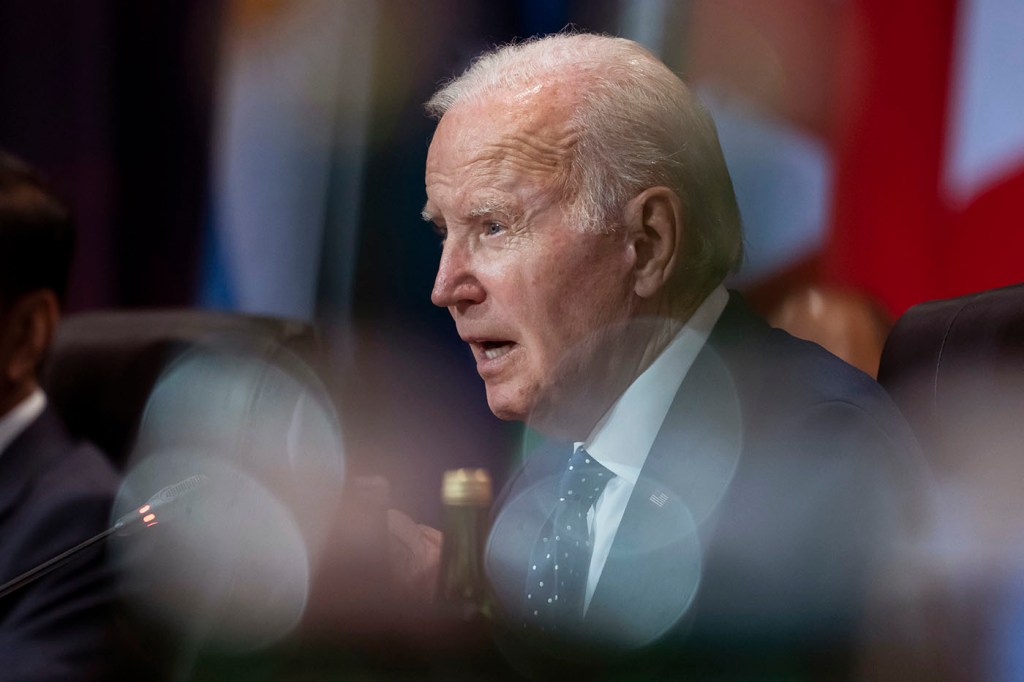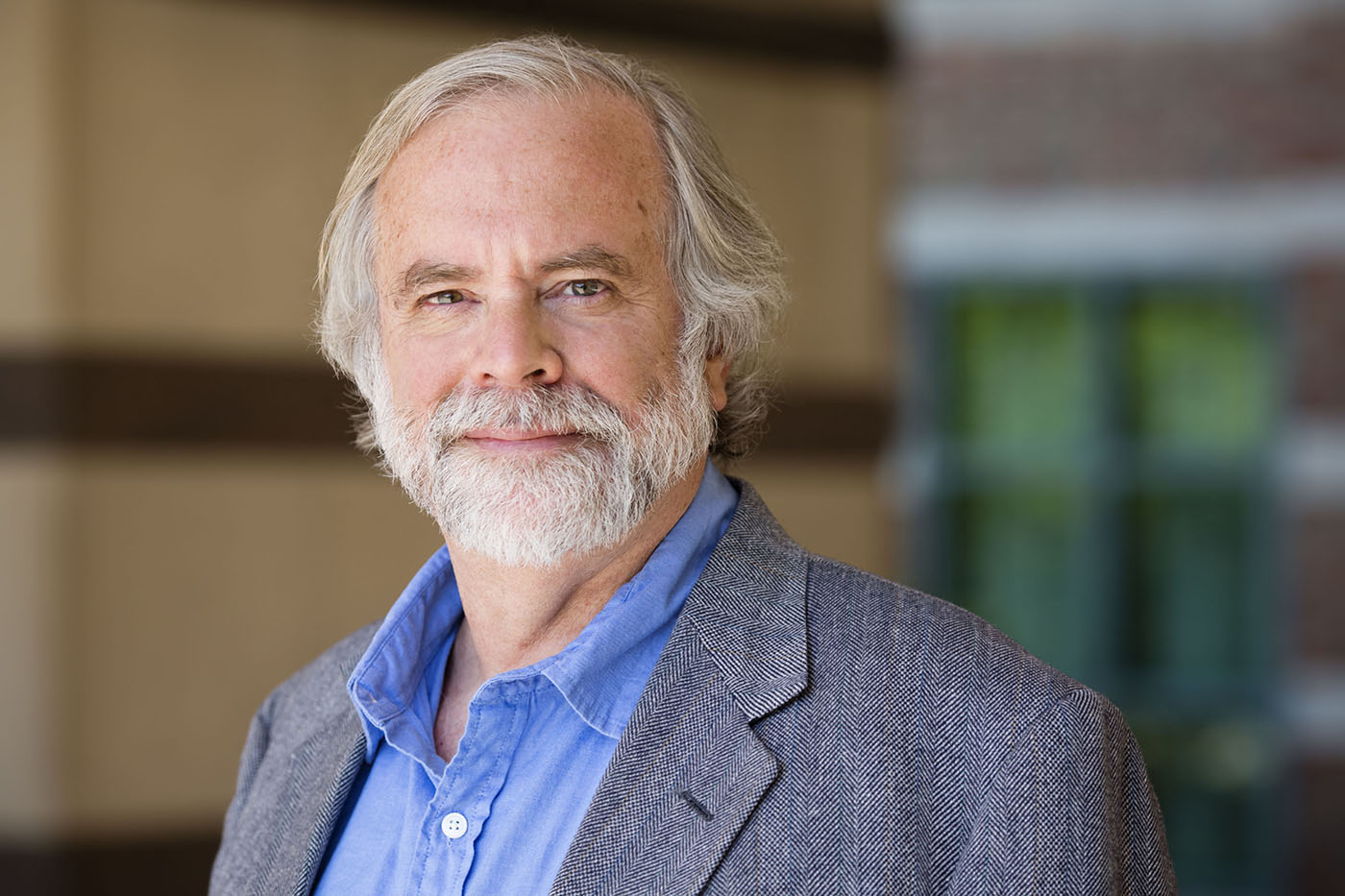Is President Biden too old to serve a second term? A cognitive scientist weighs in on his fitness ahead of 2024

Is President Joe Biden too old to become president again?
As the 2024 election season gets underway, questions about whether Biden, now 80 years, is fit to serve a second term have turned into countless editorials and think pieces declaring that, in fact, he is not.
Northeastern Global News spoke with Art Kramer, professor of psychology and founding director of the Center for Cognitive & Brain Health at Northeastern, to explain how a person’s age impacts cognition and decision-making. Kramer also touched on some of the questions swirling around Biden’s fitness for high office, on his famous presidential gaffes—a feature of his presidency that’s as endearing to some as it is worrying to others—and more. The conversation has been edited for brevity and clarity.
There’s been a lot of talk in the media about whether Biden is too old to run again. Before we get into that, I’m wondering if you can first provide a broad overview of how aging impacts a person’s brain, cognition and ability to make decisions. What do we know?
We certainly know that there are many ways to parse cognition, and one way is fluid intelligence versus crystallized intelligence. Fluid intelligence is that which we need to make quick and accurate decisions; to reason with a lot, or incomplete, information, like shifting attention rapidly between talking to a passenger and navigating a bicyclist or a pedestrian while driving.

As you get older, sometimes it’s harder to make those in-the-moment type decisions quickly. Generally, you find decreases in fluid intelligence; in attention; in something called declarative memory. When you meet somebody—like we’re meeting now—you try to remember their name, what they looked like, what you talked about. That’s a form of declarative, or episodic, memory—and it tends to decline with age. Other kinds of memory: not so much. So there are huge individual differences between the different aspects of cognition and memory. For example, procedural memory. When you learn to ride a bike as a kid, even if you don’t get back on one until you are 70, you tend not to forget how to do it. You tend to remember those more procedural skills, which can range from cooking a meal to flying an aircraft.
The other half of the equation is called crystallized intelligence. This encompasses things such as knowledge. It could be word knowledge, a person’s vocabulary, for example, or knowledge about the world. In other words: what you’ve learned throughout your lifespan, regardless of how long you’ve been alive. And that type of information tends to be well-preserved much longer into a person’s 80s and even 90s.
The other aspect of aging and cognition—be it memory, reason, problem-solving, attention, etc.—is that there are huge individual differences. We understand some of the factors that impact how well we age. Certainly health is one. If you’ve had heart disease or a stroke, hypertension or Type 2 diabetes, that tends to be a negative in terms of aging well—in terms of thinking well. On the other hand, if you’ve been relatively healthy and relatively active and physically fit—particularly in a cardiorespiratory sense, but also resistance exercise, strength training, yoga, Eastern practices, tai chi, etc.—you tend to fare better intellectually.
Some public opinion polling has shown that many Americans are in favor of capping the age at which a person can become president. Given what you just outlined, what do you make of that suggestion?
It’s true that, as we get older, lots of the intellectual skills won’t be quite what they used to be, and we won’t be able to execute them as quickly. But we have to think about what a president does. A president is not a fighter aircraft pilot, for example. He or she doesn’t need to respond quickly; they need to make the right decisions and gather the right information. As we all know, some politicians are better at taking advice from some experts than others; and I think the best presidents are often the ones who have a lot of experts that they trust.
Moreover, a president is a generalist. They’re not surgeons or fighter pilots, which require specific skills. I think the kinds of skills that any president needs are the skills of paying attention, asking the right questions and integrating information.
On the question of age limits. I think if we’re going to have a competence test for the skills you need to be president, we should be testing people your age [33] just like we should be testing people my age [70], because there are a lot of younger people who don’t have the skills to do the job. I can’t even imagine what it would be like to be president of the United States. The stress, the decisions you have to make. It’s a tough job, regardless of your age. I think in some ways Biden is an exception—that he’s willing and able to do this.
Obviously the stressors of the job are somewhat fixed in the sense that there are many, many problems to deal with on a daily basis—although there are certainly variables across administrations. How do you think Biden is handling the stress of the job at his age?
I would think that given the amount of experience Biden has in political life—the fact that he was able to stay in politics for as long as he has—speaks to his ability to handle stress. Certainly Biden has much more experience coping with setbacks and adversity than a younger person. That much is clear. On the other hand, you could say that he doesn’t move as well. Well, it’s not a job that requires you to run fast—even move necessarily. I think of Franklin D. Roosevelt who was in a wheelchair; Greg Abbott, the governor of Texas, is also in a wheelchair.
There is an odd adage that the older you get, the less you sweat the small stuff. Does that hold true when it comes to the big stuff? How should we think about it from a cognitive science perspective?
The focus does change. For example, there’s a researcher at Stanford, Laura Carstenson, who studies what you might call negativity or positivity bias. What the researchers found is that younger people tend, on the whole, to be more negative, while older people tend to look at the positives—to remember more positive information versus negative information.
There’s been great research in Europe and the United States that suggests that having supportive friends and family members is neuroprotective as we get older. And he [Biden] certainly has that. Family seems to be very important to him. There’s some research I know—albeit, not as well—that people who have something more than themselves tend to fare well, such as religion. Of course, having good friends and family members qualifies too.
We all remember when Donald Trump bragged about acing a test designed to gauge mental impairment—the whole “person, woman, man, camera, TV” moment. What do you think about subjecting government officials to some form of competency testing?
A competency test, in theory, isn’t a bad idea—at any age, to be clear—but I don’t know how you’d come up with it. That’s a tough one. Since World War II, we’ve had a competency test in the military called the ASVAB to try to sort out which military job you should have.
Does it predict a lot of the variation in how good a pilot you’ll become should you choose to become one? My guess is no. We just don’t have great tests to predict how well people are going to do in a given area of life, so I don’t know that we’ll ever come up with a test to predict the skills you need as a president. I think ultimately the voters get to decide that.
The Biden gaffe has become a genre unto itself. Lately, he’s mixed up China and Canada, and Russia’s war in Ukraine for the Iraq War, in speeches. Does that give you pause or make you question his state of mind?
Of course, those things happen when you get older. Remember, too, he was a stutterer most of his life, and stutterers often get confused, or can’t find the word they’re thinking about. But it doesn’t mean they can’t think well. If you have ALS, or Lou Gehrig’s Disease, sometimes you can’t speak at all, but that doesn’t mean you can’t think. The two are dissociable to some extent.
In your mind, given his advanced age and the opposition from those who say he couldn’t handle a second term, does Biden pass the (proverbial) cognitive test to hold high office for the next four or five years?
He does to me. We have tests to diagnose Alzheimers and other forms of dementia. If we gave one of those to Biden, my guess is he’d pass with flying colors. And he’s been doing the job for going on four years now already. I wish we understood better why some people don’t end up functioning well in old age, while others seem to do well until the day they die. We need to learn more about the factors, and how flexible those factors are, so that we can attempt to change them to enhance mental fitness throughout the lifespan.
Tanner Stening is a Northeastern Global News reporter. Email him at t.stening@northeastern.edu. Follow him on Twitter @tstening90.







